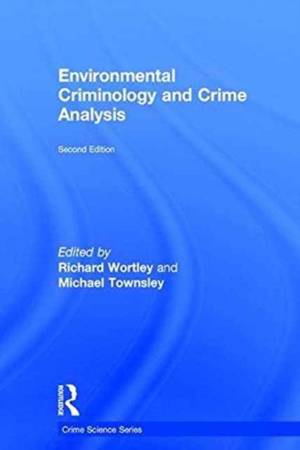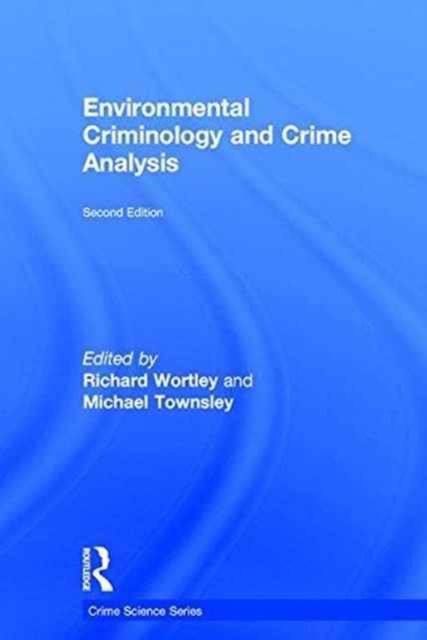
- Retrait gratuit dans votre magasin Club
- 7.000.000 titres dans notre catalogue
- Payer en toute sécurité
- Toujours un magasin près de chez vous
- Retrait gratuit dans votre magasin Club
- 7.000.000 titres dans notre catalogue
- Payer en toute sécurité
- Toujours un magasin près de chez vous
Environmental Criminology and Crime Analysis
Description
Environmental criminology is a term that encompasses a range of overlapping perspectives. At its core, the many strands of environmental criminology are bound by a common focus on the role that the immediate environment plays in the performance of crime, and a conviction that careful analyses of these environmental influences are the key to the effective investigation, control, and prevention of crime.
This new edition brings together leading theorists and practitioners in the field to provide a comprehensive, integrative coverage of the field of environmental criminology and crime analysis. This book is divided into three sequential parts:
- Understanding the crime event explores routine activity approach, crime pattern theory, the rational choice perspective, and situational precipitators of crime. - Analysing crime patterns discusses crime mapping, offender mobility, repeat victimisation, geographic profiling, and crime scripts. - Preventing and controlling crime covers topics including problem oriented policing, situational crime prevention, and environmental design.
Fully updated and including new chapters on crime scripts and offender mobility, a scene-setting introductory overview, and critical thinking questions at the end of each chapter, this text is an essential and comprehensive resource for practitioners and students taking courses on environmental criminology, crime analysis, and crime prevention.
Spécifications
Parties prenantes
- Editeur:
Contenu
- Nombre de pages :
- 360
- Langue:
- Anglais
- Collection :
Caractéristiques
- EAN:
- 9781138891128
- Date de parution :
- 01-11-16
- Format:
- Livre relié
- Format numérique:
- Genaaid
- Dimensions :
- 156 mm x 234 mm
- Poids :
- 707 g






